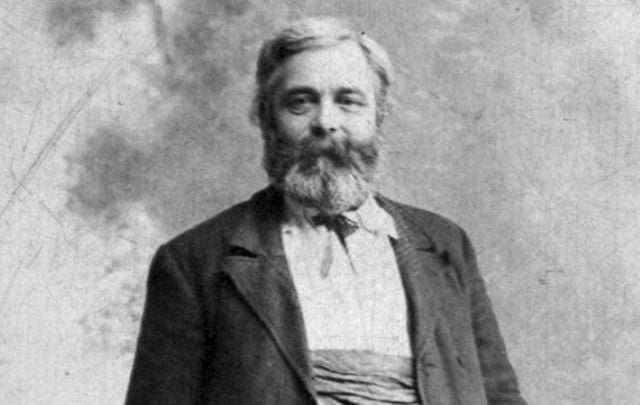Top Stories
Michael Cusack: GAA Founder’s Legacy Reshapes Ireland Today

UPDATE: Today marks the anniversary of the birth of Michael Cusack, who was born in Co Clare on September 20, 1847. He is renowned as the founder of the Gaelic Athletic Association (GAA), an organization that has become integral to Ireland’s identity and resilience over the decades.
As Ireland grapples with the legacy of its past and the complexities of modern governance, the GAA stands as a beacon of national pride and unity. The association was pivotal during the War of Independence, providing a platform for cultural expression and community cohesion at a time of great turmoil.
In a powerful reflection, historians note that the GAA was born out of a need to instill a sense of Irishness and purpose among the youth, combating an educational system that had long promoted English identity. The association’s impact is evident even today, as it continually shapes social and political narratives across Ireland.
The GAA’s history is marked by significant events, including the tragic Bloody Sunday in 1920, when British forces attacked a GAA match in Croke Park, resulting in the deaths of eleven people. This incident underscored the GAA’s role as a symbol of resistance against colonial rule and a unifying force for the Irish people.
With the centenary of the War of Independence being observed this year, the GAA’s contributions are being reassessed. Its ability to bridge divides during civil strife, as shown when Free Staters and Republicans shared the pitch post-conflict, highlights its enduring significance in fostering reconciliation.
Currently, as Ireland navigates the challenges posed by Brexit and ongoing political tensions, the GAA’s legacy remains crucial. It serves not only as a sporting organization but as a cultural cornerstone that contributes to the nation’s identity. The enduring vision of Cusack and the support from prominent figures like Archbishop Croke have ensured that the GAA continues to thrive despite the shadows of its past.
In a statement reflecting on the GAA’s role, historians emphasize, “The association has adapted and transformed, ensuring that it remains relevant and vital to the Irish community.”
As we remember Cusack today, the GAA’s influence on Irish society—from its grassroots engagements to its role in international representation—underscores its status as perhaps the most valuable organization in the State.
Looking forward, observers are keen to see how the GAA will continue to evolve and play a role in addressing contemporary issues facing Ireland. With a rich history and a promising future, the GAA is poised to remain a powerful force in shaping Irish identity for generations to come.
For ongoing updates on Ireland’s rich history and the GAA’s current initiatives, subscribe to our newsletter and stay informed.
-

 Top Stories2 months ago
Top Stories2 months agoTributes Surge for 9-Year-Old Leon Briody After Cancer Battle
-

 Entertainment3 months ago
Entertainment3 months agoAimee Osbourne Joins Family for Emotional Tribute to Ozzy
-

 Politics3 months ago
Politics3 months agoDanny Healy-Rae Considers Complaint After Altercation with Garda
-

 Top Stories3 months ago
Top Stories3 months agoIreland Enjoys Summer Heat as Hurricane Erin Approaches Atlantic
-

 World4 months ago
World4 months agoHawaii Commemorates 80 Years Since Hiroshima Bombing with Ceremony
-

 Top Stories2 months ago
Top Stories2 months agoNewcastle West Woman Patricia Foley Found Safe After Urgent Search
-

 Top Stories4 months ago
Top Stories4 months agoFianna Fáil TDs Urgently Consider Maire Geoghegan-Quinn for Presidency
-

 World4 months ago
World4 months agoGaza Aid Distribution Tragedy: 20 Killed Amid Ongoing Violence
-

 World4 months ago
World4 months agoCouple Convicted of Murdering Two-Year-Old Grandson in Wales
-

 Top Stories3 months ago
Top Stories3 months agoClimbing Errigal: A Must-Do Summer Adventure in Donegal
-

 Top Stories3 months ago
Top Stories3 months agoHike Donegal’s Errigal Mountain NOW for Unforgettable Summer Views
-

 World4 months ago
World4 months agoAristocrat Constance Marten and Partner Convicted of Infant Murder









